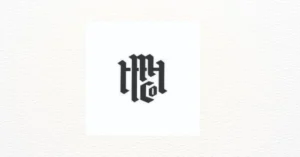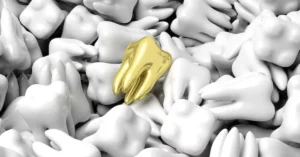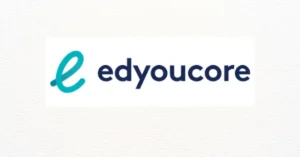In an era where surveillance capitalism, platform monopolies, and algorithmic bias dominate the internet, a quiet revolution is brewing. It doesn’t begin with billion-dollar IPOs or glossy VC pitches. Instead, it begins with code, community, and conviction. FreeWorlder.org represents that ethos—a digital space where decentralization, ethics, and peer-to-peer collaboration converge.
FreeWorlder.org is not a social media clone or crypto startup. It’s a radical rethink of how communities can organize, share, and thrive without relying on centralized platforms that extract more than they offer. This in-depth exploration of FreeWorlder.org delves into its structure, philosophy, projects, and growing relevance in a digital landscape searching for alternatives.
What Is FreeWorlder.org?
FreeWorlder.org is a platform and community hub designed to support the development and discovery of decentralized tools for free living. It merges open-source technology, voluntary exchange, digital privacy, and off-grid resilience into a single ecosystem. The goal: empower individuals and communities to live more autonomously, ethically, and cooperatively.
At its core, FreeWorlder.org operates like a curated digital commons. It’s a place where tools, resources, and guides are shared—not sold. Users can find everything from peer-to-peer communication protocols and decentralized marketplaces to permaculture design manuals and free learning curricula.
Origin and Philosophy
Born out of dissatisfaction with mainstream internet culture, FreeWorlder.org was launched by a small collective of developers, educators, and activists who believed another digital world was possible. Rooted in values of:
- Decentralization: No single point of control or failure
- Consent and Autonomy: Users control their data and relationships
- Voluntary Exchange: No coercion, ads, or data mining
- Skill Sovereignty: Education and self-reliance over dependency
FreeWorlder.org is less about building the next tech unicorn and more about planting digital seeds for resilient futures.
Site Structure: How FreeWorlder.org Works
1. Tool Directories
Users can browse open-source tools across categories like:
- Encrypted communication (e.g., Matrix, Briar)
- Peer-to-peer barter systems
- Decentralized identity and reputation systems
- Mesh networking and off-grid communication
Each listing includes technical documentation, usage guides, and community reviews.
2. Knowledge Commons
Educational resources include:
- DIY sustainability guides
- Alternative education models
- Off-grid living tutorials
- Skillsharing forums
Materials are freely available under Creative Commons licenses and often curated by contributors with lived experience.
3. Local Exchange Nodes
FreeWorlder.org encourages the creation of real-world “nodes”: community groups or individuals hosting events, skillshares, seed swaps, or tool libraries. These nodes report back into the site, creating a distributed, living network of practice.
4. Discussion Hubs
Unlike algorithmically driven social feeds, FreeWorlder’s forums are organized around thematic clusters:
- Digital Rights and Privacy
- Post-Capitalist Economics
- Alternative Education
- Community Resilience
Moderation is democratic, with rotating peer-review roles and transparent logs.
The Importance of Decentralization
FreeWorlder.org was designed as a response to systemic internet failures:
- Centralized platforms banning dissenting voices
- Big Tech’s monopolization of user data
- Supply chain fragility exposed by global crises
Its answer is a web of small, interoperable tools and communities—each capable of functioning independently, yet stronger together.
Technology Stack
FreeWorlder.org is built on:
- ActivityPub and Matrix protocols for federated communication
- IPFS (InterPlanetary File System) for distributed content hosting
- PeerTube for decentralized video sharing
- Gitea for collaborative development
The result is a website that isn’t just about decentralization—it practices it.
Governance Without Hierarchies
Governance at FreeWorlder.org is inspired by cooperative models and participatory democracy. Decisions are made through:
- Open assemblies held monthly via federated video platforms
- Proposal forums where users vote and comment
- Task-based circles similar to sociocratic working groups
There are no permanent leaders. Roles rotate, and responsibility is shared based on contribution and consensus.
Real-World Impact: Stories from the Network
Kenya: Mesh Networks in the Countryside
A FreeWorlder node in rural Kenya deployed a low-cost mesh network using recycled hardware and open-source routers. It now serves as a local internet for five villages, connecting farmers, health workers, and students.
Germany: Free Learning Circle
Educators in Berlin launched a curriculum bank aligned with unschooling and democratic education principles. Children and parents co-design learning plans, using FreeWorlder.org as a hub.
Brazil: Seed Sovereignty Cooperative
Agroecologists in São Paulo built a digital seed library, helping farmers exchange heirloom varieties digitally while coordinating physical swaps via FreeWorlder maps.
These examples underscore the platform’s role not just as a website—but as an enabler of grassroots change.
The Challenge of Scale Without Centralization
As FreeWorlder.org grows, it faces a paradox: how to scale sustainably without compromising values. Strategies include:
- Decentralized Hosting: Mirror sites hosted by trusted nodes
- Self-Moderation Protocols: Training users in democratic moderation
- Resource Clustering: Avoiding “everything store” syndrome by segmenting into focused domains
By resisting the temptation to become “the one platform to rule them all,” FreeWorlder.org maintains integrity.
Funding and Sustainability
FreeWorlder.org is funded by:
- Member donations
- Small grants from aligned cooperatives and NGOs
- Crowdfunded micro-bounties for feature development
There are no ads, no affiliate links, and no user-tracking revenue schemes. Financial transparency is published quarterly.
Ethical Interoperability
Rather than replicate what already exists, FreeWorlder.org emphasizes connecting tools that do. For example:
- Syncing with Mastodon for updates
- Linking to LibreTranslate for multilingual access
- Federating with other educational commons for joint curricula
This approach builds a richer, layered ecosystem without diluting autonomy.
Security and Privacy by Design
From login to browsing, user privacy is protected:
- No analytics scripts or third-party cookies
- Optional anonymous accounts
- Open-source audit trails for all code
- Encrypted private messaging with E2EE defaults
It is one of the few platforms where users don’t need to trade privacy for functionality.
The Future of FreeWorlder.org
Upcoming initiatives include:
- Federated Learning Pods: Decentralized micro-schools coordinated via FreeWorlder
- Mutual Aid Mapping: Real-time tools for crisis response and local organizing
- Zero-Knowledge Toolkits: Enhancing security for journalists and at-risk activists
The team is also working on a “portable node” kit—solar-powered servers preloaded with essential FreeWorlder tools for communities without stable internet access.
Final Thoughts
FreeWorlder.org is not a product. It’s a proposition: that a better internet—and a freer society—is possible if we design with ethics, distribute with purpose, and trust people more than platforms.
As trust in traditional tech erodes and crises reveal the fragility of centralized systems, the world may yet catch up to what FreeWorlder.org has quietly built—an architecture not for domination, but for dignity, cooperation, and real freedom.
For more information, click here.









